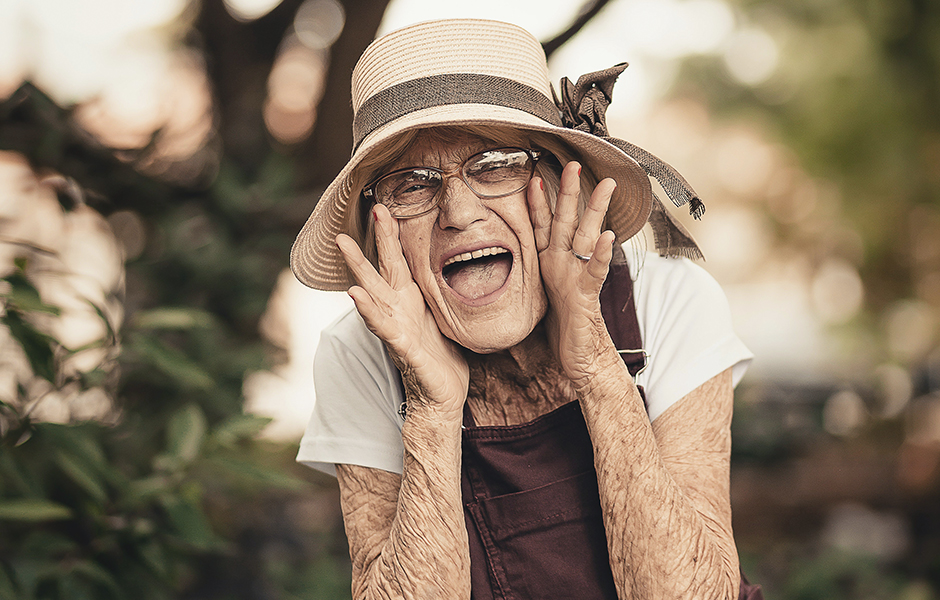A digital platform created with and for older people is helping to combat loneliness and social isolation while empowering and improving the physical and mental health of users wherever they are, whether at home or in an institution, through tailored and personalized physical and cognitive activities ranging from Tai Chi to mind games.
This tool results from MOAI LABS, a transnational laboratory that brought together nine partners from three European countries (Portugal, Spain and France), including researchers from CINTESIS/University of Aveiro Sara Guerra, Liliana Sousa and Oscar Ribeiro. The project was led by the Fundación INTRAS, from Spain, and funded by FEDER, under the Interreg Sudoe program).
The project has already been recognized as an example of “good practice”, at the launch of the new Interreg Sudoe program (2021-2027), in Santander, in January 2023, and was also the winner of the Annual Act of Regional Policy and European Funds (in the European Territorial Cooperation category), last November.
The goal of MOAI LABS was to create, together with older people (about four dozen “experts by experience” that made up the “Living Labs“), an innovative digital solution to meet the challenges of loneliness and isolation at these ages.
Sara Guerra, a researcher at CINTESIS/University of Aveiro who has been fully dedicated to the project since its inception, makes a very positive assessment and recalls the main phases and results achieved.
“The older people who participated in the project, the experts by experience, helped us understand what loneliness is, what isolation is, how they experience it, and what strategies they use,” she recalls.
The answers are eloquent: “Loneliness is a state of the soul, encompassing sadness, a sense of abandonment, and anguish. I can be in the middle of a lot of people, but if they don’t understand me, I will feel lonely.”
Then, “over a set of co-creation sessions, older people gave us practical indications about the features that a digital solution should have and the care we would have to follow so that it would be interesting, stimulating, accessible, easy to use and inclusive”.
After gathering the requirements most valued by the elders (which resulted in two challenges: ACTIVATE and CONNECT), the project launched a “call” to which several companies in the technological area applied with their proposals. The winner was a Portuguese company, which benefited from an acceleration program to adapt the ACTIF AGE app to the needs, demands, and expectations of these “expert groups”.
In the last months of the project, which ended in January 2023, the online platform was tested with groups of older adults who had already participated in the co-creation sessions. In this way, they were involved from the beginning to the end, from the conception of the idea to its practical application.
The resulting platform allows, for example, a calendar of activities to be created according to people’s needs, interests, and medical situation, using the information provided in a questionnaire.
From there, it provides suggestions for viewing cognitive stimulation videos with varying degrees of difficulty, adapted functional stimulation videos, cultural videos, but also activities such as yoga, stretching, or meditation. All that is needed is the Internet and a computer, tablet, or television.
As the creators state, the activities are the result of in-depth work with the academy and with specialists in different areas, such as physiatry and geriatrics, and involve qualified instructors, supported by science.
In addition, the tool has a chat room where people using the platform can chat, send photos, and make invitations, among other potentialities. “Digital solutions, such as apps, social robots or even solutions involving artificial intelligence, are important, although older people still prefer face-to-face contact,” she notes.
The project has also resulted in events to raise awareness and sensitivity to the challenges of loneliness and social isolation in older adults, such as “Connect 2 Older People“, as well as the publication of scientific articles and the presentation of posters and oral communications in several countries, including the US, Portugal, and Spain.
The final MOAI event, entitled “MOAI TODAY: together against loneliness”, took place in Valladolid in January of this year and brought together approximately, 1200 people, including policy makers.
Although MOAI LABS has officially come to an end, Sara Guerra says that “there is interest from several partners to continue testing the platform in the community, namely in the context of institutions and in the community”.
MOAI LABS: Laboratories of Collective Intelligence and Social and Health Technology to combat isolation and loneliness of older people is a project funded by the European Regional Development Fund (ERDF), under the Interreg Sudoe program, with an overall amount of almost one and a half million euros. The project involved entities from Spain (Fundación INTRAS, Gerencia de Servicios Sociales de Castilla y León, FUNGE Formación y Empleo, LEITAT and Ticbiomed), France (Institut des Métiers de la Longévité and Mutualité Française Limousine) and Portugal (CINTESIS/University of Aveiro and INOV INESC Inovação). Those who worked directly with CINTESIS.UA were CASO50+, Institute of Social Service of Porto (ISSSP), Porto4Ageing and Instituto de Ciências Biomédicas Abel Salazar da Universidade do Porto.

